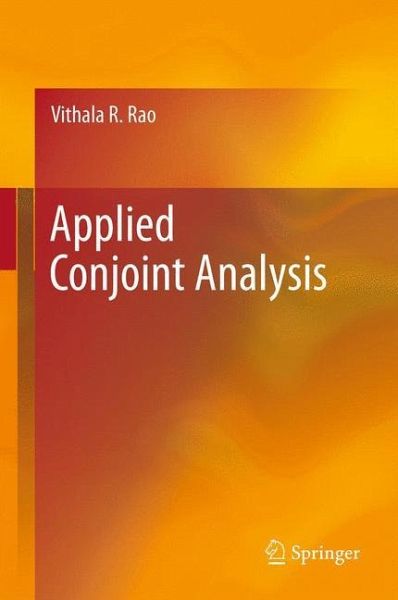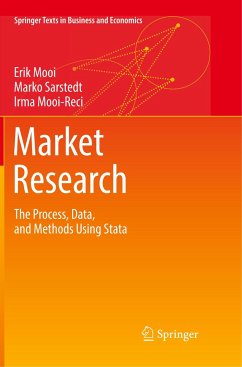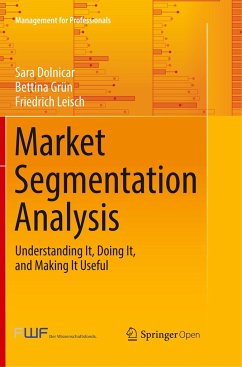
Applied Conjoint Analysis
Versandkostenfrei!
Versandfertig in 6-10 Tagen
129,99 €
inkl. MwSt.
Weitere Ausgaben:

PAYBACK Punkte
65 °P sammeln!
Conjoint analysis is probably the most significant development in marketing research in the past few decades. It can be described as a set of techniques ideally suited to studying customers' decision-making processes and determining tradeoffs. Though this book is oriented towards methods and applications of conjoint analysis in marketing, conjoint methods are also applicable for other business and social sciences.After an introduction to the basic ideas of conjoint analysis the book describes the steps involved in designing a ratings-based conjoint study, it covers various methods for estimati...
Conjoint analysis is probably the most significant development in marketing research in the past few decades. It can be described as a set of techniques ideally suited to studying customers' decision-making processes and determining tradeoffs. Though this book is oriented towards methods and applications of conjoint analysis in marketing, conjoint methods are also applicable for other business and social sciences.
After an introduction to the basic ideas of conjoint analysis the book describes the steps involved in designing a ratings-based conjoint study, it covers various methods for estimating partworth functions from preference ratings data, and dedicates a chapter on methods of design and analysis of conjoint-based choice experiments, where choice is measured directly. Chapter 5 describes several methods for handling a large number of attributes. Chapters 6 through 8 discuss the use of conjoint analysis for specific applications like product and service design or product line decisions, product positioning and market segmentation decisions, and pricing decisions. Chapter 9 collates miscellaneous applications of marketing mix including marketing resource allocation or store location decisions. Finally, Chapter 10 reviews more recent developments in experimental design and data analysis and presents an assessment of future developments.
After an introduction to the basic ideas of conjoint analysis the book describes the steps involved in designing a ratings-based conjoint study, it covers various methods for estimating partworth functions from preference ratings data, and dedicates a chapter on methods of design and analysis of conjoint-based choice experiments, where choice is measured directly. Chapter 5 describes several methods for handling a large number of attributes. Chapters 6 through 8 discuss the use of conjoint analysis for specific applications like product and service design or product line decisions, product positioning and market segmentation decisions, and pricing decisions. Chapter 9 collates miscellaneous applications of marketing mix including marketing resource allocation or store location decisions. Finally, Chapter 10 reviews more recent developments in experimental design and data analysis and presents an assessment of future developments.














